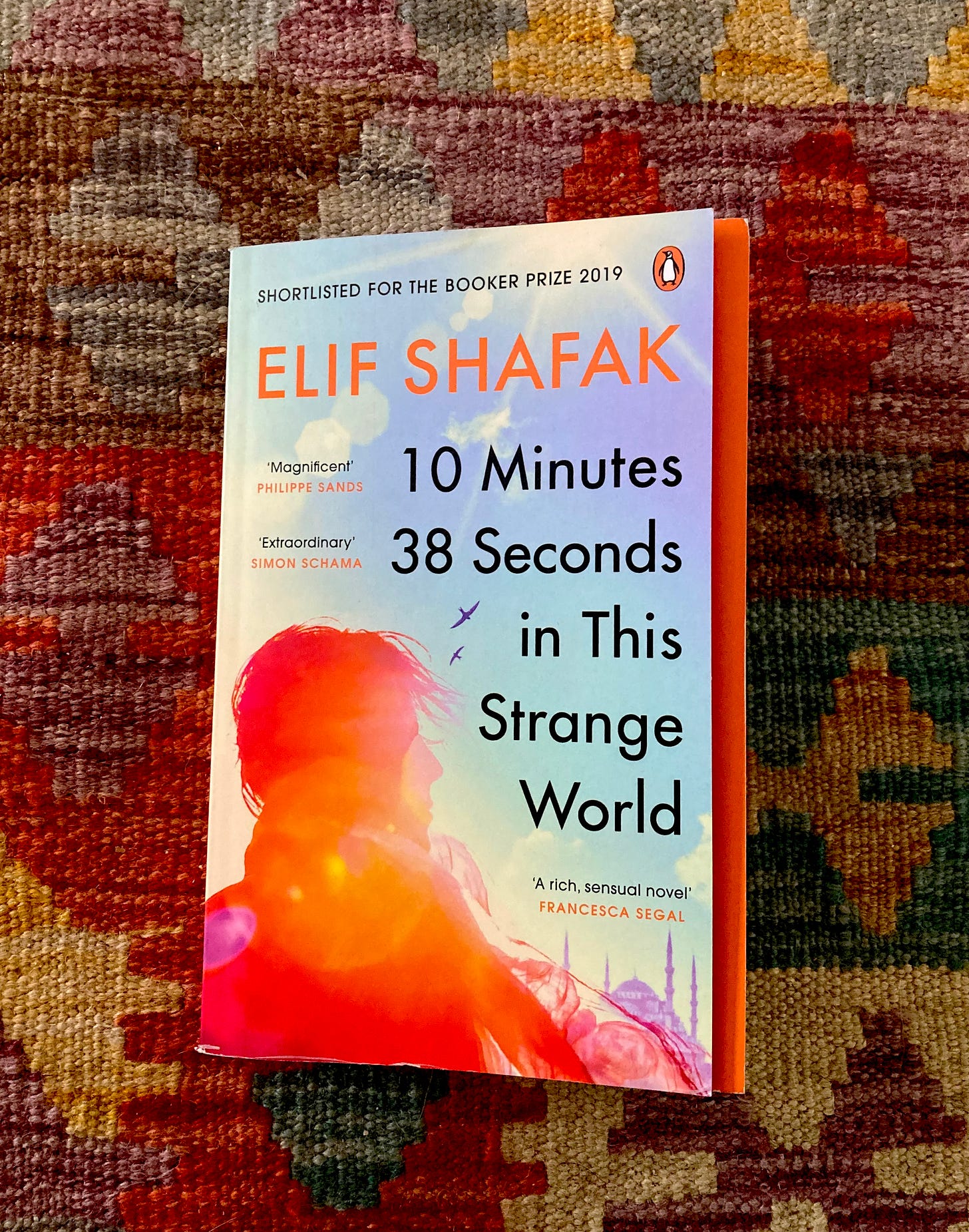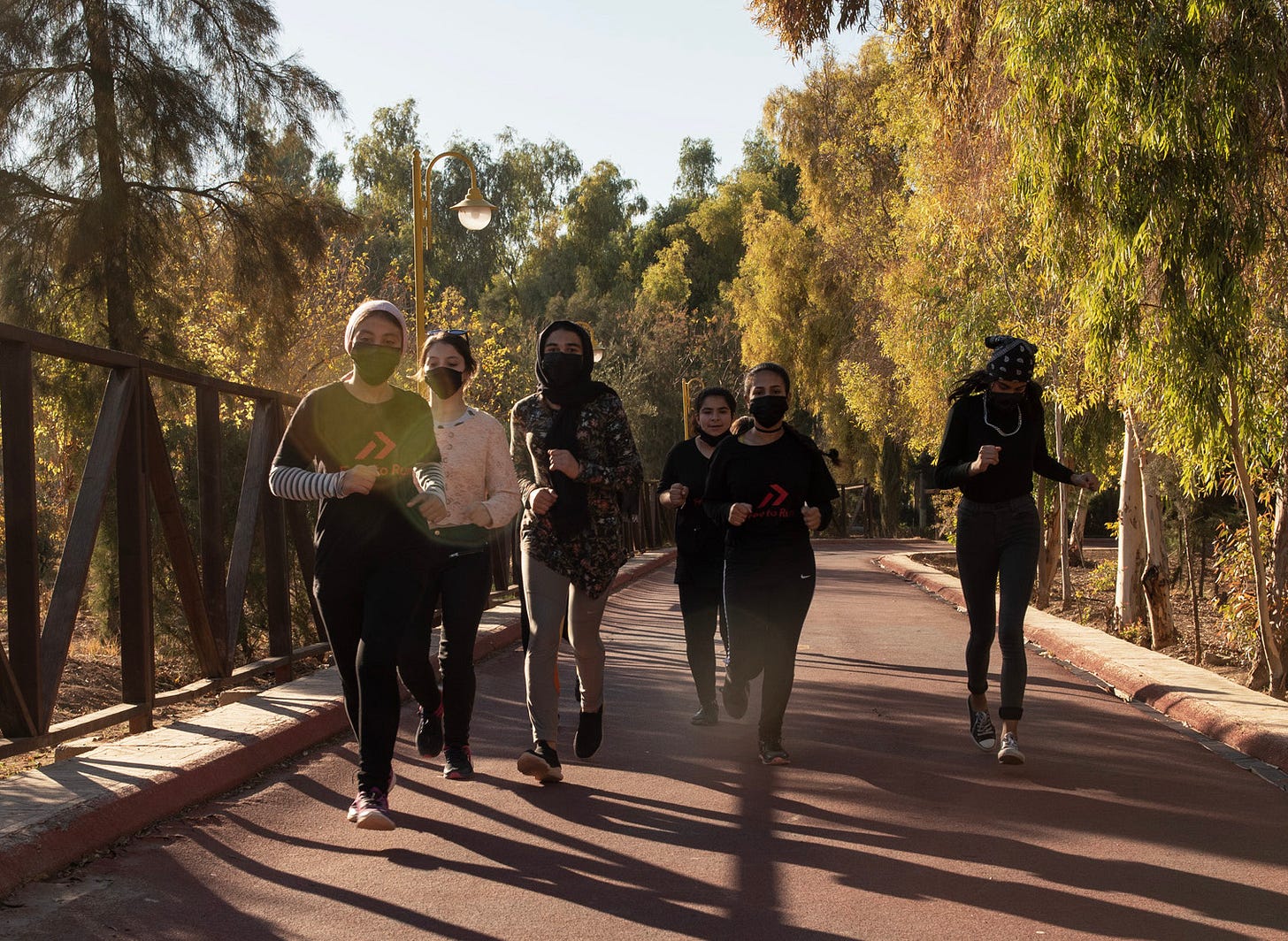Hello and Happy New Year - I hope your 2022 has got off to a good start. There was no newsletter in January due to a plethora of deadlines, so consider this your bumper New Year special.
I was planning on trying to write something at least vaguely inspiring for the first newsletter of 2022, but have decided against it.
The start of a new year almost always brings anxiety over what you haven’t achieved in the last year and looking ahead to what you want to achieve in the coming year. It can be exciting to start afresh, but it can also be daunting. In a world that praises productivity, goal-getting, and profits, it’s nice to just sit and be for a while. No resolutions, no ‘new year, new me’.
So, instead I want to write about something that, although small, has brought me a lot of joy over the past few grey weeks of January. And that is, you guessed it, writing in cafés.
I know this may sound pretentious. Many see writing in a café as being a sort of ‘performance’, only done by those afflicted with main character syndrome or those wanting to make a declaration to prying eyes that, yes, you are creative and getting shit done. But in all honesty it’s not as ostentatious as it seems. You see, one of the main reasons why I have been working in cafés over the last month is that they are considerably warmer than my flat, where the heating has been broken for most of January.
It’s also because I get very easily bored and distracted sitting in the same place day in, day out, staring at the same four walls. When you work from home (and I know I’m lucky to have the flexibility that allows me to work from anywhere), it’s nice to be able to have a routine where I walk somewhere, say hi to my friendly Italian barista, order a coffee, sit down, and take time to think about what I need to do in the space/time that I have. It helps me to be more productive; I put my headphones on and zone in, focused on the Word Doc in front of me. (I must add that there are times when I achieve nothing but substantial caffeine jitters.)
OK, maybe it’s *not* so pleasant when there are two screaming children behind you, but let’s imagine the conditions are perfect; a piping hot latte; a quiet coffee shop; a comfy chair; calming background music. What else do you need? Perhaps a cinnamon bun and a dog to pet, but now I’m being pedantic.
There is also a certain element of nostalgia, romance and literary history imbued within the café, which brings to mind writers and artists in the cafés of 1920s Paris, smoking and sipping on their café crèmes, discussing philosophy, politics and art. The rain lashing down outside.
Simone de Beauvoir and her lover Jean-Paul Sarte worked together at Café de Flore in Paris. Ernest Hemingway wrote most of A Moveable Feast in cafés around the city, while people watching (another positive of working in cafés). And then there’s Patti Smith, who spent long uninterrupted hours writing her memoir M Train in her “corner” in a West Village café, called Cafe ‘Ino:
"I huddle in my corner, still wearing my coat and watch cap. It's 9 a.m. I'm the first one here. Bedford Street as the city wakens. My table, flanked by the coffee machine and the front window, affords me a sense of privacy, where I withdraw into my own atmosphere."
More recently, the actor Riz Ahmed revealed how he met his now-wife, the novelist Fatima Farheen Mirza, when they were both working in a coffee shop in Brooklyn. “We were both jostling over the same laptop plug points,” he told Jimmy Fallon on The Tonight Show. Proof that the ultimate meet cute can happen in real life, not just in rom coms. There is still hope for us single coffee-shop dwellers!
The pandemic robbed us of many things - working in cafés was not by any means one of the significant losses. But still it impacted how many people worked; not all of us are lucky enough to have a quiet space at home, a room of one’s own as Virginia Woolf termed it. A café to work in, relax in, read in - seen by many as a luxury - can be a necessity for some.
As we start to reclaim the public spaces that we had to relinquish, there is a welcome familiarity in sitting down to write in a café, wherever they are in the world, from Hackney to - recently - Erbil in Iraq. I’ve found it comforting, and in January, doing something that brings comfort is quite frankly essential to get through the month.
Reading
Joan Didion and the opposite of magical thinking - RIP to the late, great Joan Didion who passed away just before Christmas (I wrote about her in my last newsletter). In this piece Zadie Smith, another literary giant, shares her thoughts on the writer for The New Yorker. A must-read, especially this bit:
“There is much in Didion one might disagree with personally, politically, aesthetically. I will never love the Doors. But I remain grateful for the day I picked up “Slouching Towards Bethlehem” and realized that a woman could speak without hedging her bets, without hemming and hawing, without making nice, without poeticisms, without sounding pleasant or sweet, without deference, and even without doubt. It must be hard for a young woman today to imagine the sheer scope of things that women of my generation feared women couldn’t do—but, believe me, writing with authority was one of them.”
When Williamsburg was on the wrong side of the river - Jami Attenberg writes beautifully about moving to Brooklyn (before it was cool), her life there, and then making the decision to leave when the developers moved in.
‘In our teens, we dreamed of making peace between Israelis and Palestinians. Then my friend was shot’ - A heartbreaking long read from The Guardian about the friendship between an Israeli boy and a Palestinian boy who met at a summer camp for youth from conflict zones. As they grew up, their hopes for peace and reconciliation between the two sides were crushed by police violence. Written by Israeli filmmaker, Roy Cohen.
Boris Johnson is revealing who he really is - An eye-opening (and terrifying) piece by Moya Lothian-Mclean on the slew of draconian bills (Police Bill, Borders Bill, Elections Bill and others) currently going through Parliament, and the far-reaching consequences of them if they are passed.
10 minutes 38 seconds in this strange world - A novel by Turkish writer, Elif Shafak. ‘Tequila Leila’ is a sex worker who has just been murdered and dumped in a rubbish bin on the outskirts of Istanbul. As her brain shuts down over 10 minutes and 38 seconds, she goes back in time to tell the story of how she came to be there, from a free-spirited girl living in a strict religious family in Van, overcoming child abuse, oppression, and exploitation. It may sound like a bleak book, but it has a vibrant narrative, intricately told with each anecdote sparked by a smell or taste that appears in her slowly fading mind. Her tight-knit group of friends, other misfits and outcasts, are what holds Leila and the story together - a glue binding them as they try to build a life in the turbulent city.
Listening
Longform Podcast #470: Abe Streep - This is my favourite podcast and this recent episode, with the writer and author Abe Streep, is a particularly thoughtful one, which touches on the importance of respecting your sources and the community that you’re reporting on. He talks a lot about how he reported this piece for The New York Times Magazine, about the Arlee Warriors, a basketball team on the Flathead Indian Reservation in Montana, many of whom are from the Salish tribe.
Arabic music playlist - While in Iraq I picked up a few Arabic songs through recommendations from friends and some Iraqi teenagers I interviewed for an article, and have slowly been adding more from across the Middle East. It’s now become a bit of an obsession. Thanks to those who’ve shared their favourites with me. If anyone has any recommendations please let me know!
Writing
In December, myself and photographer Giulia Frigieri, travelled to Iraqi Kurdistan to work on some stories together…
Between Belarus and Poland, Yazidi refugees found only cold and hunger – then ‘came back to nothing’ in Iraq - The first story, for the Canadian newspaper The Globe and Mail, looks at the Yazidi families who have just returned to Sharya Camp after attempting to reach Europe through Belarus. They told me how they camped out on the border with Poland for 13 days in freezing conditions with no food or water. They were forced to cross the border by Belarus border guards and then pushed back over by Polish police. Stuck in between, they became pawns in a much larger political game between Lukasheno's authoritarian regime and the EU.
‘I feel free when I run’: The young women enjoying a sense of freedom in Iraq - The second story appeared in print for The Observer Magazine and is about a group of teenage girls living in IDP camps in Iraqi Kurdistan who are finding sanctuary in sport. Free to Run, an NGO that supports and empowers women and girls in regions of conflict, creates safe spaces for them to develop confidence and reclaim public space through different sports. War magnifies existing inequalities and these girls have lived through two: the Iraq War and the war with ISIS. Not only have they been forced to flee their homes, but they have also lost loved ones, missed education, and are now vulnerable to child marriage. We joined them on a hike and at several sports sessions, including running and kick-boxing.
“On the drive back from the hike the girls stand up in the minibus and clap to the beat of the music, before deciding that is not enough; we pull over and they teach me some Arabic dance moves on the side of a road. Wafaa takes my hand and we dance in a circle, Bushra shakes her hips to the music, Laila claps, Hiba sways, and Faiza waves her hands in the air. Juan watches, laughing and clapping along. Even the occasional beep from a passing car won’t deter them.”
Thanks for reading!





